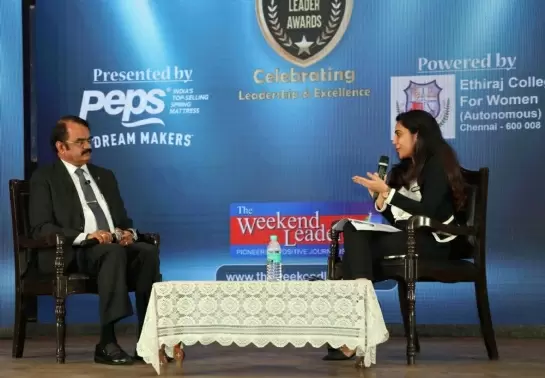Delhi HC upholds death sentence to Dec 16 gang rapists
13-March-2014
The Delhi High Court Thursday upheld the death sentences awarded to four convicts in the Dec 16, 2012 gang rape, saying that their "barbaric" act is "not worthy of human condonation" and society cannot be a a spectator to "such depraved behaviour".
A division bench of Justice Reva Khetrapal and Justice Pratibha Rani also dismissed the appeals of the four convicts - Mukesh, 26; Akshay Thakur, 28; Pawan Gupta, 19; and Vinay Sharma, 20 - challenging the Sep 13, 2013 trial court verdict sentencing them to death.
The court said the barbarity with which the victim's internal organs were "pulled out with bare hands coupled with the twisting of iron rods through every orifice in her body exhibits outlandish mental perversion not worthy of human condonation".
"To expect society to be a sanguine spectator to this kind of depraved behaviour of the outlandish variety and to continue to extend its protective arm to the convicts would be both unnatural and ludicrous," said the court in its 340-page verdict.
Holding that the offence was committed in an "extremely fiendish, demoniac, barbaric and nefarious manner", it noted that the manner in which it was committed is "demonstrative of exceptional licentiousness and perversion of a superlative degree".
"The medical evidence charters the hellish misery and trauma inflicted upon the prosecutrix (victim) before her death," said Justice Khetrapal.
The 23-year-old physiotherapy intern was gang-raped and brutally sexually assaulted by six men, including a juvenile, in a moving bus. The accused then threw her and her male companion out of the vehicle, stripped of clothing, to die by the roadside on the cold December night.
The woman died of grave intestinal injuries Dec 29, 2012 at Singapore's Mount Elizabeth Hospital, where she was airlifted for specialised treatment.
The bench said that pain of an unparalleled order was also inflicted upon the victim's family members and her companion, who were "compelled to watch her die many deaths before being certified dead".
What made it worse was that "debauchery, avarice, profligacy and viciousness appear to be the only impelling forces behind the commission of the crime," it said.
"... the crime was not committed to alleviate poverty or the pangs of hunger and starvation, nor were the convicts in such impecunious circumstances as is sought to be portrayed."
"Undoubtedly they did not belong to the cream of the society, but they were neither beggars nor vagabonds nor even ruffians for whom crime is a means of self-preservation and is in fact reflective of the social injustice meted out to them," said Justice Khetrapal.
The convicts were "usefully and gainfully employed and were not expected to stoop so low in their lust for money and in order to satiate their egregious sexual appetite", she added.
Justice Pratibha Rani said the victims had reposed complete confidence in the occupants of the contract bus while boarding it to reach their destination but this was "misused".
The court also said that the shocking incident left an "indelible scar on the social order" and became a burning societal issue which crossed national borders.
Citing medical evidence like the post-mortem report, the court said it depicted "satanic beastliness" in the convicts, who did not stop at torture and even attempted to run them over with the bus so as to eliminate evidence and witnesses.
"Their conscience unpricked by the gruesome crime and the infernal torture inflicted by them, they coolly proceeded to divide the looted articles amongst themselves, to wash the bus which was stained with the blood of the victims," it said, adding that the instant case without doubt falls in the "rarest of rare cases" category where culpability assumes proportion of extreme depravity.
Holding the incident to be "completely revolting, gruesome and spine-chilling", the bench said: "We conclude by stating the obvious that a strong message needs to be sent to the perpetrators of grotesque and ghastly crimes against women that such crimes shall not be countenanced, though we confess that we are not aware of any case in which a crime of such dimensions has been committed hitherto before".
"... if the rising trend towards such crime is not nipped in the bud and arrested at its inception, the poison is likely to spread like wildfire through the social order, rendering it hapless and defunct".
"Exemplary punishment is, therefore, the need of the hour, for if this is not the rarest of rare cases, there is likely to be none," it said.
One of the six accused was found dead in a cell in Delhi's Tihar Jail. A juvenile involved in the crime was Aug 31, 2013 sent by the Juvenile Justice Board to a reform home for three years, the maximum term for a juvenile under the law. - IANS
IIM Grad and First-Generation Entrepreneur Anish Popli's ProcMart Secures Rs 250 Crore in Series B Funding
First Indian Space Tourist Talks Dreams and Inspiration Before Blue Origin Flight
Former MLA Rathod Bapu Rao Switches from BJP to Congress in Telangana
Zerodha Co-Founder Nikhil Kamath Launches 'WTFund' to Support Young Entrepreneurs
Firing At Salman Khan’s Mumbai Residence: Delhi Police Launch Probe








